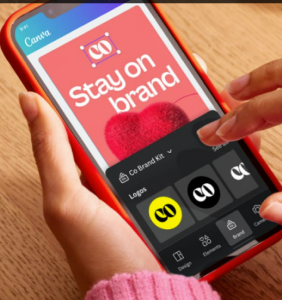Has social media created a “call-out culture”?
Social media has long been a double-edged sword for communication professionals. On the one hand, it allows you to connect with more people than ever before, getting your message across to consumers who might not even be based in the same country as you. On the other hand, it’s a forum for anyone to say…
Social media has long been a double-edged sword for communication professionals. On the one hand, it allows you to connect with more people than ever before, getting your message across to consumers who might not even be based in the same country as you. On the other hand, it’s a forum for anyone to say what they think about your company, even if it’s not entirely fair. Negative reviews can go viral in a matter of minutes, potentially ruining the reputation of your brand (United Airlines is a classic example of this).
A recent survey by Sprout Social has highlighted the “call-out culture” that social media has created.
Increasing accountability through social media
Almost half of consumers surveyed by Sprout Social said that they’ve used social media to call out brands. What are the most prevalent reasons people do so?
- 70 per cent of those surveyed said that they called out brands to raise awareness among consumers.
- 55 per cent said they sought an apology or solution.
- 51 per cent claimed they did so to draw media attention to the issue.
- 38 per cent said they hoped to get a refund.
On top of this, a staggering 81 per cent of consumers believe that social media has increased accountability for businesses. With brands so clearly in the spotlight these days, what can these statistics teach us?

The power of a response
The majority of customers accept that yes, things do go wrong in business. What matters is how you respond to the situation, particularly on social media, where your solution is there for all to see. Sprout Social asked how consumers would react if a brand ignored their complaint on social media. 40 per cent said that they’d contact the business on another channel, while 35 per cent said that they’d boycott the brand altogether. A further 34 per cent said that they’d share their experience of the brand with their friends. This shows just how important your response can be.
A poor response is worse than no response at all on social media.
Those saying they would boycott the brand altogether increased to 50 per cent for a poor response – clearly a bad response is worse than none at all. We’ve all seen examples where companies’ PR teams haven’t taken enough time to investigate a matter, or have simply responded with something generic and impersonal, making the matter worse than it was originally.
British Airways is a prime example of this. Back in May, the airline didn’t take the time to explain why it had to cancel so many flights, and the apology video the company posted was frankly bizarre, showing their CEO standing in an office wearing a yellow hi-vis jacket.

Be genuine
The most important lesson here is to be genuine in your response. Social media has the power to make your brand far more personable – it brings you closer together, you can show the day-to-day workings of your company, and it allows you to get away from the large corporation view that has caused many to feel disillusioned with businesses.
This should be no different for your customer complaints. According to the Sprout Social survey, the top reasons why consumers call brands out on social are dishonesty (60 per cent), bad customer service (59 per cent) and rudeness (57 per cent). Don’t make the same mistakes on social media. Ensure you shy away from using corporate speak, and take each complaint on a case-by-case basis. Have a real person responding, not a chat bot or an automatic reply function.
For more information on communication trends, visit our Insights page.
Discover insights.
Creating messages that cut through social media, news cycles and even the humble inbox has never been easy, but, with more noise across more channels, it’s become more important than ever to create messages that stand out and land with impact. Visual communications tools are gaining traction as a way of shaping messages that hit…
Looking for greater choice in the contract options available to you? Having history and rapport with a specialist recruiter like Fraser Clapcott will open doors to opportunities you may have missed for yourself, that add value for both contractor and employer. In the current climate of uncertainty, a willingness and propensity for flexibility comes with…
If you’ve been ruminating on changing-up your comms career, now may be the ideal time to talk with your trusted recruiter about making a move. Salt & Shein Director, Lucy Newcomb, sees significant scope for motivated communicators to broaden their career horizons, and make the job of their dreams a reality, in 2023. “A rapidly…







